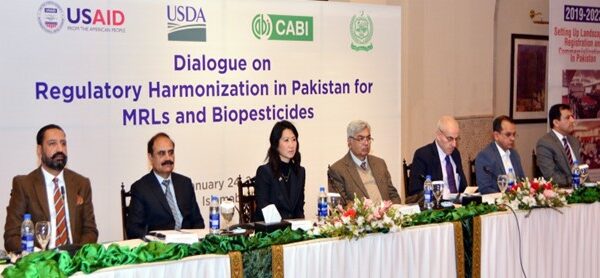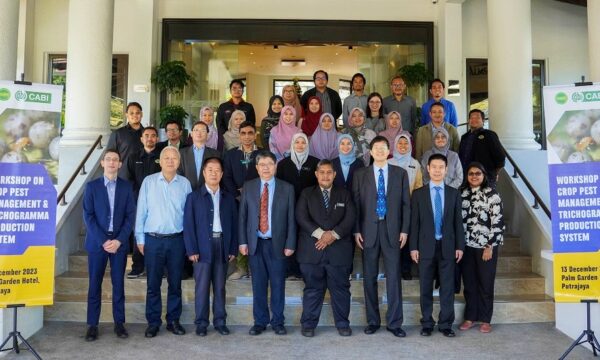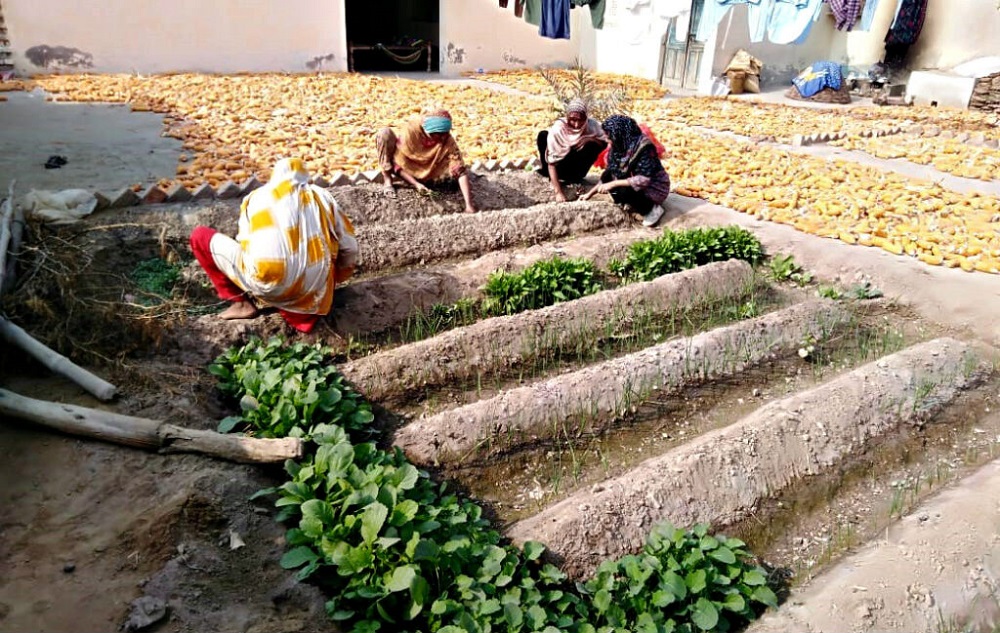
Long-lasting and heavy monsoon rains since June 2022 have claimed thousands of lives in large parts of Pakistan particularly Sindh. Millions of people have had to leave their homes and are now homeless or living in emergency shelters.
According to UNICEF, as many as four million children are living near contaminated and stagnant flood waters, risking their survival and wellbeing. Crops have been destroyed, food is scarce and hunger is looming.
Tehsil Khipro of district Sanghar was badly affected due to flooding and heavy rains in the mid of August 2022. This natural calamity destroyed the crops of many smallholders’ farmers and in turn caused a massive shortage of fresh vegetables in Khipro.
Sustainable income generation
Under the Better Cotton Initiative (BCI), CABI is supporting female entrepreneurship for sustainable income generation and the rich harvest afforded by the kitchen garden is being seen as a way of helping to ensure greater food security amid disaster.
Stay at home women in Pakistan are adding value through income generation borne from growing their own vegetables on their own soil unaffected by the recent flood waters.
Meghi is among the dozens of women who have practiced and learned the necessary skills to set up their own backyard garden – also known as kitchen gardens – under the guidance and support from CABI.
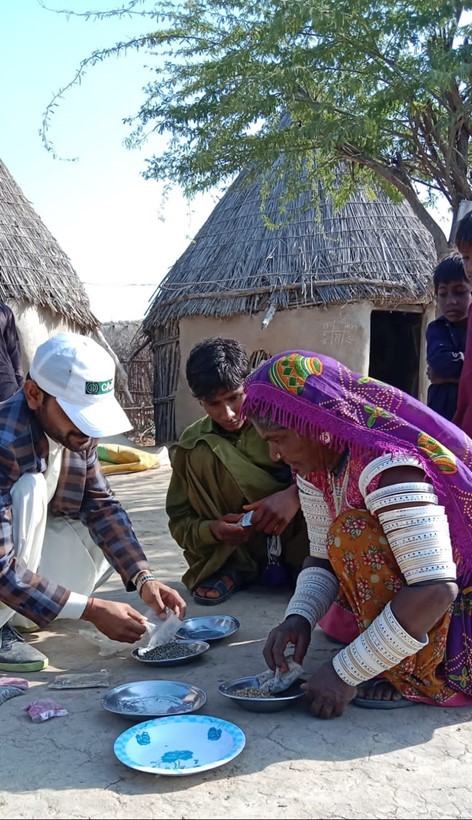
Thanks to training from CABI, Meghi has been transformed from a housewife with few skills on how to grow her own food to a women entrepreneur who is contributing equally to the development of her family.
Meghi lives in the small village of Began Hingorjo, Tehsil Khipro, with her husband Hamero and eight children – five boys and three girls. Her husband is a farmer and earns a meagre amount from barley – barely enough to fulfil their daily needs.
Fulfilling family’s needs
Meghi said, “I have learnt a lot from the BCI project. It has empowered me and now I can cultivate and earn more by growing vegetables in the backyard of my house. Today, I can fulfil my family’s small needs and my children’s school fees.”
The 2022 floods gave another blow to Meghi’s already struggling family. Her village was badly flooded and many of her neighbours fledged to save their lives. Meghi and her family were utterly wrenched and unhappy and did not know what to do in their dismal state.
Luckily for her family, Meghi got selected among the women to whom CABI provided support through its BC GIF (Better Cotton Growth & Innovation Fund) which was initiated in March 2022.
All the targeted groups were all dependent on agriculture and none of them had been involved in kitchen gardening before.
Enhancing food security
The purpose was to produce organic vegetables free of pesticides and to add a significant number of vitamins and minerals to enhance nutrition and food security in the vulnerable communities affected by the floods.
This effort was part of CABI’s support in its ongoing engagement with the BCI project in Sindh ‘Producing better cotton in Pakistan.’
As part of a package of training and support, Meghi and others received a package of vegetable seeds to start growing food in their own backyards. The package consisted of five different types of seeds to grow carrot, bottle gourd, okra, spinach and Indian squash.
CABI also taught Meghi and her neighbours how to prepare the soil, how to plant the seeds for the best yields and a variety of other techniques for vegetable husbandry.
Immediately after training, Meghi set up her own vegetable garden and the benefits associated with it were enormous. Meghi cultivates these vegetables throughout the seasons on half an acre of land.
Reaping the benefits
With that successful practice, she has fulfilled her vegetable needs and even sells a considerable number of her harvested vegetables in the local shops to earn a moderate amount to buy other food items.
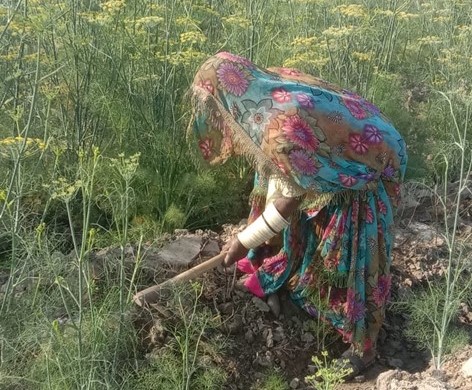
Meghi said, “As an illiterate woman, I have always been a homemaker – living in a joint family and undertaking the household chores. Due to the social stigma attached to women working outside the home, I hesitated to start a business or work to support my family.”
With no skills to earn an income, Meghi was supported by the CABI team to start a kitchen garden.
She has received several pieces of training from women village trainers on kitchen gardening – enabling her to run her small-scale garden effectively. This has transformed her from an unskilled woman to an independent worker.
CABI has so far trained hundreds of female farm workers under the project funded by the BCI.
Additional information
Main image: The concept of the kitchen garden has allowed women to empower themselves and support their families amid the devastation of the recent floods suffered by millions in Pakistan (Credit: CABI).
Find out more about CABI’s work under the Better Cotton Initiative from the project page ‘Producing better cotton in Pakistan.’
Authors
Rahib Ali
Mushtaque Ali
Contributor
Mahwish Sarwar – Communication Officer
Related News & Blogs
On Earth Day, we take a look at climate change and agriculture
Climate change poses a threat to the livelihoods of smallholder farmers, exacerbating existing risks like extreme weather and the migration of crop pests and diseases that threaten food security. Already, the climate crisis is accelerating biodiversity…
22 April 2024


